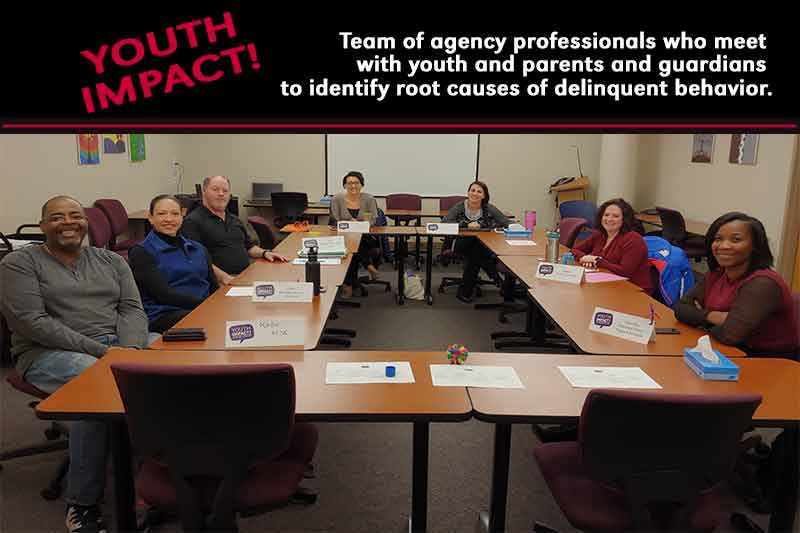Nebraska Center for Justice Research Continues their Collaboration to Produce Best Outcomes for Dually-Involved Youth
- published: 2019/04/03
- contact: Ryan Spohn - Nebraska Center for Justice Research
- phone: 402.554.3794
- email: rspohn@unomaha.edu

Omaha – Soon after his arrival at UNO in 2012, Ryan Spohn, Ph.D., director of the Nebraska Center for Justice Research, began collaborating with juvenile justice stakeholders to improve services for dually-involved youth in Douglas County. These youth, also known as dual-status youth or crossover youth, have open cases in both the child welfare and juvenile justice systems.
Spohn collaborates in these efforts with Emily Wright, Ph.D., professor in the UNO School of Criminology and Criminal Justice and associate director of NCJR. Their work began as a formal evaluation of the Crossover Youth Practice Model in Douglas County. The model adopts evidence-based practices and promotes cross-system communication to improve the outcomes of crossover youth. CYPM originated at the Center for Juvenile Justice Reform at Georgetown University.
Locally, this effort is known as Youth Impact!, and it addresses the criminogenic needs of these youth in an effort to reduce recidivism, improve family situations, and increase prosocial activities. The primary intervention consists of team meetings where agency professionals meet with the child and parents or guardians to identify root causes of the delinquent behavior.
Douglas County was an early-adopter of CYPM, so a primary goal of the collaboration is to disseminate information about how Youth Impact! operates, as well as how the UNO research team evaluated the initiative. Spohn and Wright have presented their research locally at the annual meetings of the Nebraska Juvenile Justice Association in Kearney. Spohn and community partners presented findings at the National Council of Juvenile and Family Court Judges in San Diego in 2018. Spohn also provided a presentation at the Coalition of Urban and Metropolitan Universities annual conference in Chicago.
In addition to conference presentations, Spohn and Wright collaborated with Georgetown University to discuss their evaluation work with crossover youth via two national webinars, as well as a third webinar targeted at smaller jurisdictions in Nebraska who aim to adopt the CYPM model. The team has published findings from their interviews of juvenile justice and child welfare professionals involved in the Youth Impact! initiative in a peer-reviewed journal and is currently working on additional publications. Finally, they provide updates each year to stakeholders in both Lincoln and Omaha, including juvenile court judges and the Chief Justice of the Supreme Court of Nebraska.
A popular aspect of the evaluation is the cost/benefit analysis included as part of the full evaluation in 2017. Because Youth Impact! often reduces the likelihood that crossover youth progress further into the juvenile justice system, cost-savings are experienced as a result of reductions in court costs and probation supervision. In 2019, Spohn received additional funding to update and expand this cost/benefit analysis in order to more fully understand the fiscal impact of Youth Impact! in Douglas County.
As important as the research findings have been, however, Spohn and Wright most value the strong collaborative relationships they have built with community partners in non-profits, county agencies, and state agencies working to improve outcomes for our youth.